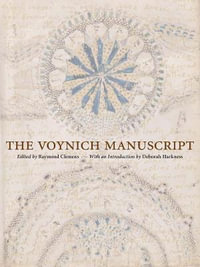This study of Soviet politics and society under the New Economic Policy is the first to relate local problems directly to changing central ideological views during the crucial early years of the Soviet State. Roger Pethybridge makes an intensive examination of five Russian and minority localities in 1922, when the NEP was at its early stages, and again at its height in 1926. These detailed studies demonstrate that under the early NEP there were effectively two
capitals - Moscow for politics, and Petrograd for culture, and their roles are examined in depth, as Professor Pethybridge analyses the workings of Bolshevik control mechanisms, and means of communication
between centre and periphery in this period. One Step Backwards, Two Steps Forward throws new light on the roles of socio-political agents, and potential enemies in Russia's vast hinterland. Professor Pethybridge argues that the well-known threat to the regime from the kulaks was less menacing than that from the Nepmen and the artisans. This carefully researched and provocative account of the formative years of the USSR will be invaluable to all scholars of
Soviet history and government.
Industry Reviews
`his treatment is indeed more comprehensive than that found in most accounts of the period.'
Adam B. Ulam, Times Literary Supplement
`this is an interesting and well researched study which throws light on aspects of NEP society previously little investigated, and thus will be of use to those interested in the period ... this work is a valuable addition to existing studies of NEP with a fresh approach worthy of serious attention.'
Soviet Studies
`This is a vividly written work, rich in detail and suggestion, an impressive continuation of the author's earlier and major studies of Russian social history in the revolutionary era. It is also a sobering reminder that there is nothing very new in the spectacle of a reforming Soviet leadership finding itself in command of a less than wholly responsive or effective administrative system nationwide.'
Political Studies
'The potential value of Pethybridge's project is undeniable. And in fact his detailed chapters, which roam the provinces of Smolensk, Tver', Samara and Kazakhstan, contain many vivid insights into local life. The chapters based on Smolensk in particular are enjoyable as well as instructive.'
Catherine Merridale, King's College, Cambridge, The Slavonic and East European Review, Vol.69, Part 4
`This lengthy book is packed with interesting detail and contains some fascinating bibliographical finds, for which the reader of Russian will be grateful.'
Peter Gatrell, European History Review May 92
'this is an unusual approach and a welcome attempt to break fresh ground ... Those familiar with Soviet history of the 1920s will learn something here ... it should ... provide signposts for the profitable ventures of future researchers.'
John Channon, School of Slavonic & East European Studies, London, EHR Jan '93
'this is an important book ... It is important because it sums up better than any other general work on the period, the social constraints and diversity under which the Soviet government and "society" labored during the NEP.'
Anthony Hyman, Central Asian Survey, Vol. 11, No. 1, 1992

























